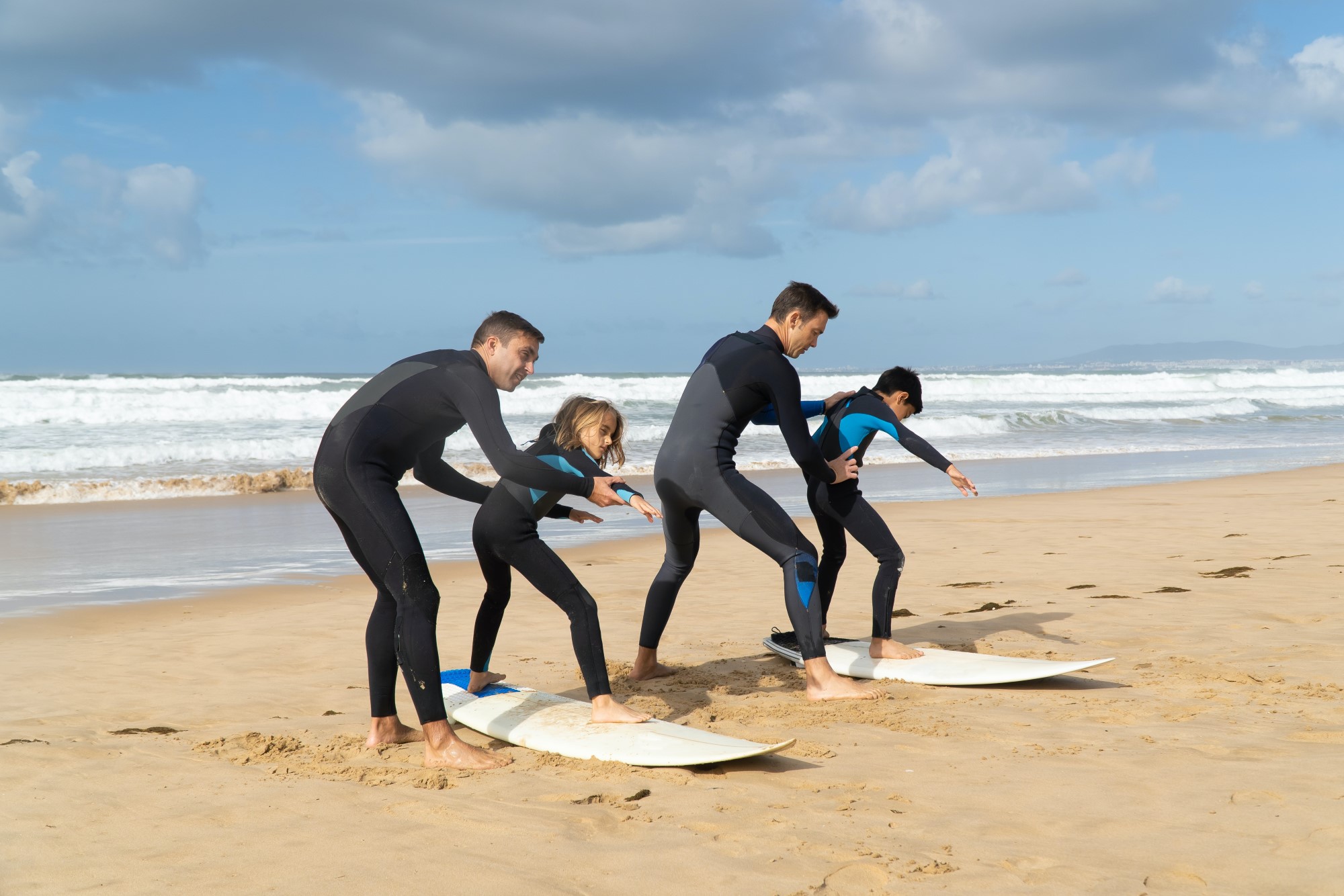
Although many people have surfing on their bucket list, only a few of them pick it up. For some, what prevents them from setting out to learn is that they don't know whether they're going to be good at it; there is always the fear of failure.
To relieve those worries, here are seven pro tips for beginner surfers that will help you start the adventure. Besides these useful tips, you must put in the work. No one ever jumped on a surfboard for the first time and caught the barreling overhead wave. Like any other sport, you must put in the time and effort to learn and enhance your skills.
Learn Some Surfing Etiquette Before Aiming for the Waves
Just like anything in life, some rules apply to the surfing lineup. A "lineup" refers to all those individuals with boards and wetsuits who are out in the water trying to catch the waves. If you don't want to make the more experienced surfers mad, there are a few things you need to know before heading out.
Surfing rules require you to never let go of your board. It's hazardous to you and others when it's out there by itself. You should attach it to yourself by a leash held to one of your legs.
When you're paddling out, remember that there may be other surfers surfing the wave that you want to go through. Thus, go around the break and not through it. Avoid getting in the way of someone who is surfing on the wave; you may get hurt.
Don't be scared. Most of these folks are friendly, and surfing at the beginner level tends not to be a “gang” sport. If you have an instructor, you should be okay in the water.
Don't Learn by Yourself
Surfing may seem easier than it is. So, never approach surfing by yourself. Go to a surf camp such as Surf School Santa Barbara, or find an experienced friend to teach you. Doing this will help you avoid putting yourself in danger of injuring yourself and others.
Get the Right Surfboard
So many inexperienced surfers head to the beach, holding shortboards under their arms because they think they look cool. What's not cool is flopping around the water for too long because you cannot balance on a board that is designed for experienced surfers.
Instead, use a surfboard that is meant for beginners. For surfers who are just starting, experts recommend starting with a soft-top board. Long, large soft-top surfboards give you lots of stability and buoyancy, which is important in getting your paddling and pop-ups down. They also have a softer exterior, which is far much safer considering you'll be bailing lots of times.
Choose a Good Teacher
If you decide to enroll in surf lessons, research the teacher in advance. Ensure they have the needed experience and have excellent reviews. Usually, besides teaching you how to surf, an excellent teacher will inspire you and help you fall in love with surfing.
Surf Somewhere With Few People Around
Although you may want to head to the most popular spot in your area, popular spots are usually frequented by more experienced surfers who have probably been in the area for many years and know how to get the best waves. So, find yourself a spot off the beaten path that is not crowded, where you will get more waves, which will make you a better surfer faster.
Surf a Beginner's Wave
Using a beach that is suitable for beginners is vital to your success in surfing. Learn to surf on a beach that is renowned for good, steady waves, and your learning experience will be smoother. Tackle smaller waves first before attempting larger ones. Although you may feel ready, if your teacher doesn't say you are ready, you are not. With the right amount of dedication, you'll be upgrading your surf spot within a short while.
Avoid Paddling Parallel to the Wave
Whether you decide to duck under a gigantic wave or paddle a smaller one, you must never turn the surfboard parallel to the whitewater. Turning parallel allows the breaking wave to have a bigger surface area to push back; it will throw you towards the shore and you'll need to start all over again.
Final Thoughts
Surfing is quite a feat of human ingenuity. It is quite amazing how we have learned to harness the mighty power of the ocean. Surfing gives you a feeling unlike any other. Ensure you follow all the above tips, and you'll be surfing like a pro within a short time.
Other Watersport Resources:
What Is It About Kitesurfing That People Love the Most?
Expert Tips: How To Improve Your Paddleboarding Skills